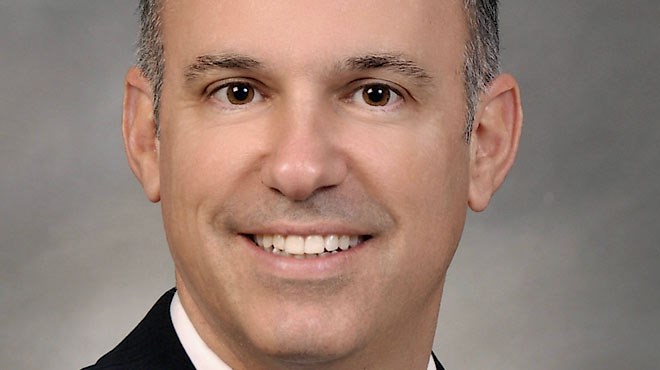I preface my comments by thanking council and staff for their hard work during this recently completed budget process. Despite the fact that I may not agree all the time with council decision, I do respect that we are all striving to better our community.
That being said, I do have major concerns with how the budget is prepared, and in turn how council approves it. This is why, once again this year, I voted not to approve the city operating budget. In addition, the comments that I am about to make are not new, as I have made them during public council and finance meetings over the last few years.
Despite the fact that the 2020 city budget was just approved a couple of weeks ago, I am already thinking about the 2021 budget process. In fact, I will be presenting a motion in the next few weeks that hopefully will lead to a different approach on how we as a council, the caretaker of the tax dollar, approach the budget process.
I wholeheartedly believe in the following principles and notions:
- The budget that is prepared by management is too quickly passed. We do not decipher the huge document during our public finance committee meetings. A few meetings, a couple of hours long, jammed in at the end of the calendar year, is not enough. We need to go through the huge document, page-by-page, line-by-line, even if we start in October, and go through until February. In this manner, every request for a tax dollar can be questioned, and hopefully justified. The city will not shut down Jan. 1 if the budget is not approved, as many taxes are paid with monthly installments, and first quarter installments can be paid status quo, and adjusted later.
- The city budget must be one based on public needs, and not corporate wants. I question the need for the massive hiring of communication people over the past few years in the communications department, as well as in other departments that have their own people. Likewise, I question why we have hired new staff in economic development, bylaw and managers for special projects. Why also are we feeding the want for massive investment in IT, when the need was clearly not outlined?
- Why do we ask outside boards, such as the police service, to come back with a slimmed down operating budget, when a motion by me to have our departments do the same, was rejected. Each manager at the city must automatically, or can and should, be directed to find efficiencies in their respective departments.
- Over-expenditures in one year should not be automatically tacked on to the next year’s budget. This inflated number, which was not approved in the budget, is then used to add the tax rate increase to. This is wrong, as it has inflated the city budget much beyond inflation.
- Drawing on reserves constantly to make up for over expenditures is a pseudo fix for spending too much. We must not blow savings that are there to leverage monies from other levels of government for instance, as we are paying expenses for the one year but not elimination them, and therefore will be in the budget for years to come without a way to pay for them, except tax increases.
- When staff comes forward with a request for a special roads levy to be tacked onto the property tax increase, they must include a plan of where that money will be spent. I voted no to the special levy because it is not acceptable to have the spending priority for these dollars come to council after the levy was approved. We are still waiting for the list of work that will be funded by this addition tax increase.
- Constantly increasing property taxes for wants is not sustainable. Seniors who wish to stay in their homes, those on fixed incomes, landlords, and working people cannot continue having their pockets picked via property tax increases that are higher than inflation. The corporation of the City of Greater Sudbury must expand the number of houses and businesses in our city with population and business growth, more people will be paying into the pot, instead of the same number of folks unrealistically being given the burden to support Greater Sudbury on their shoulders.
Again I, as well as other councillors, have brought up the above-mentioned notions, as well as other ideas, during open meetings at council and finance, but this is the time where we must walk the walk, and not just talk the talk. I am not oblivious to the scrutiny that I have received from some of my colleagues, and staff about my stand during the budget deliberations, yet I have always, and will continue to advocate for the taxpayer of this great city.
I respect that change is difficult, but I am confident that we have the talent around the council table that can result in a real effective institutional change in the philosophy of how the city budget should be approached. In this regard, I will be asking my fellow councillors to support my request that management begin now on endeavouring to find efficiencies across the corporation to be presented during next year’s budget deliberations. They also need to focus on needs, rather than wants when preparing the taxpayers’ budget document. It is time to reboot now!
Mark Signoretti is city councillor for Ward 1 in Greater Sudbury.
